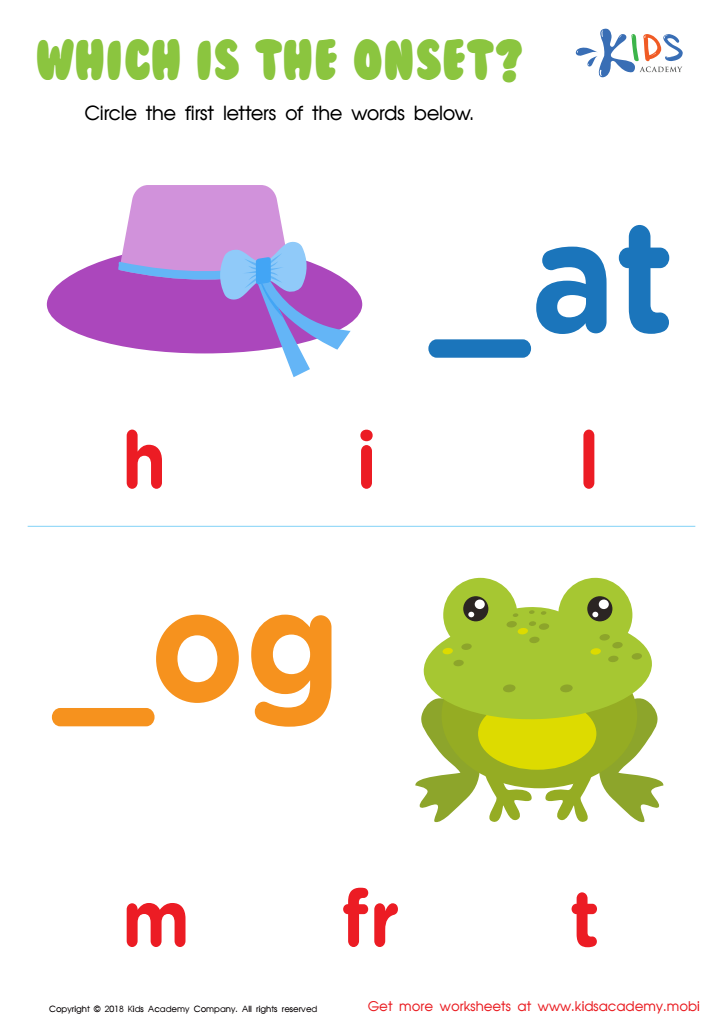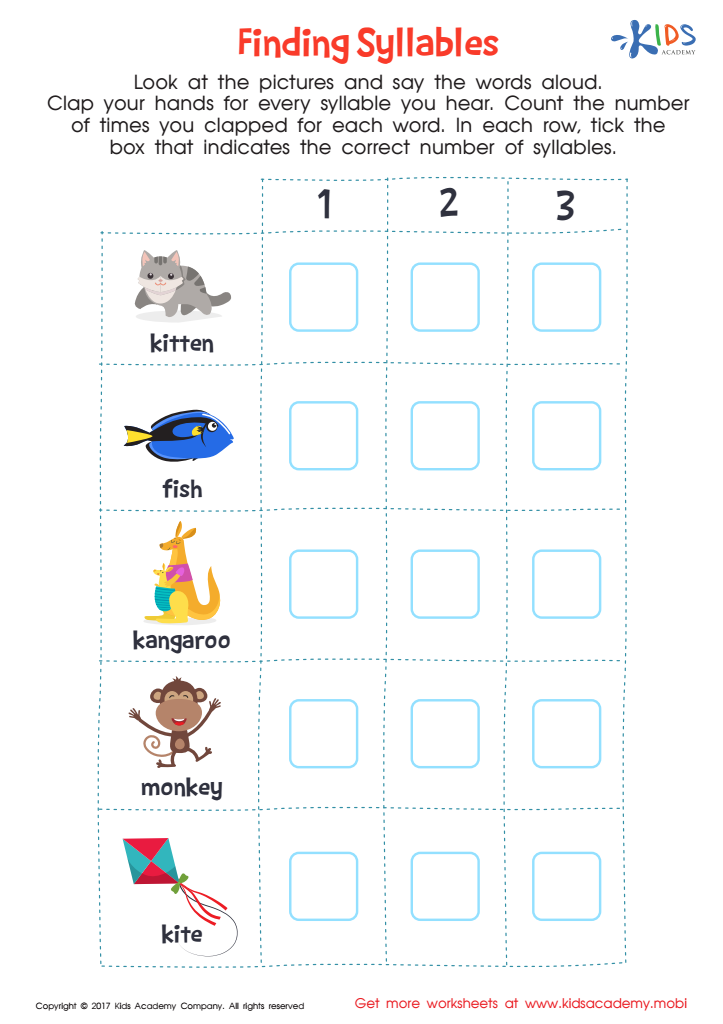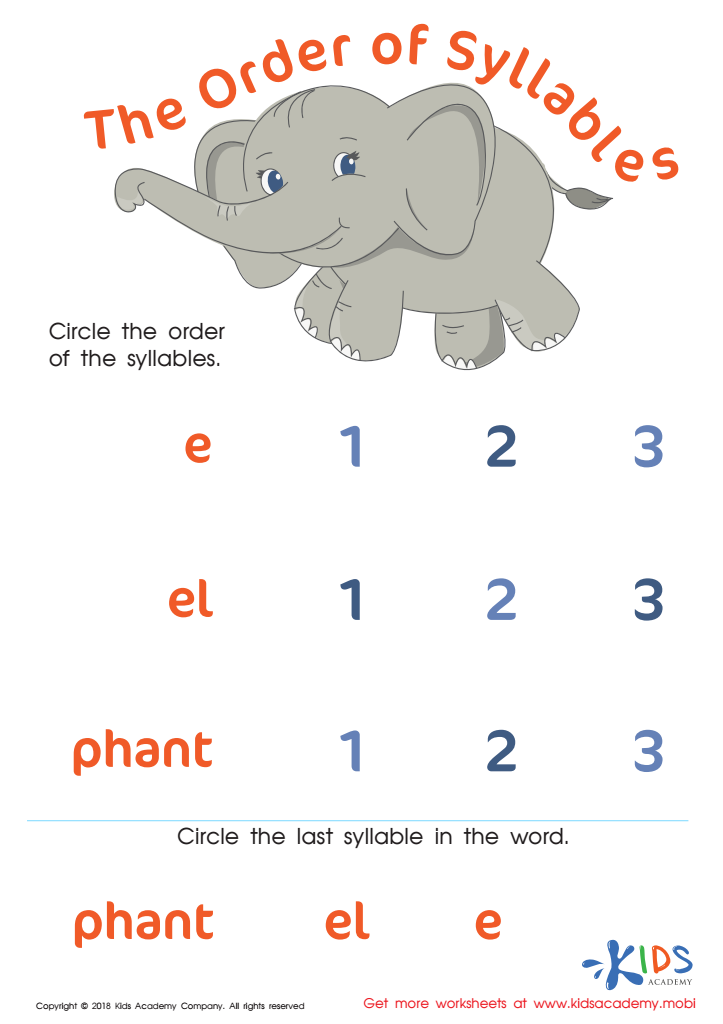Understanding syllables Worksheets for Ages 4-5
3 filtered results
-
From - To
Discover our engaging "Understanding Syllables Worksheets" designed specifically for kids aged 4-5! These worksheets provide a fun and interactive approach to learning about syllables, helping young learners recognize, split, and blend words effectively. With a variety of activities like counting syllables, identifying sounds, and matching exercises, children will develop essential phonemic awareness and language skills. These worksheets are perfect for facilitating classroom learning or enjoyable at-home practice, making early literacy both effective and entertaining. Enhance your child's reading foundation today with our expertly crafted resources that support growth and confidence in understanding syllables!


Which Is the Onset? Worksheet


Finding Syllables Word Structure Worksheet


The Order of Syllables Worksheet
Understanding syllables is fundamental for early literacy development in children aged 4-5, making it crucial for both parents and teachers to engage with this aspect of language. Syllables are the building blocks of words; they help children break down and manipulate sounds, making it easier for them to read and spell. When children learn to identify syllables, they enhance their phonemic awareness, which is the ability to hear, recognize, and work with sounds in spoken language.
Syllable awareness also supports vocabulary development. As children practice breaking words into parts, they gain insight into their structure, aiding comprehension. This skill fosters a more profound love for reading and a strong interest in language, encouraging children to experiment with words, rhyme, and rhythm.
Furthermore, syllable activities are engaging and can easily be incorporated into daily routines, promoting a fun learning environment. This playful approach enhances social skills as children share activities and learning experiences with peers and family.
Ultimately, nurturing an understanding of syllables in young learners lays a solid foundation for their future literacy skills, setting the stage for academic success and fostering lifelong abilities in reading and communication. Hence, prioritizing syllable games and activities is essential for both parents and teachers.
 Assign to My Students
Assign to My Students





















